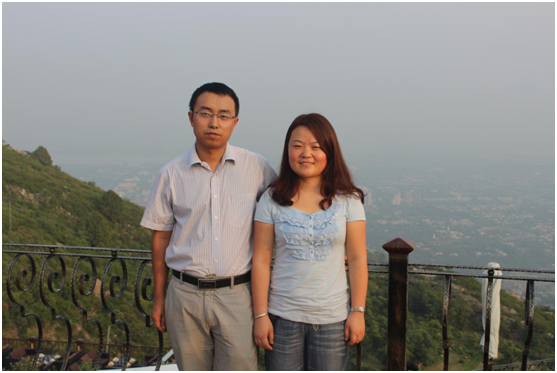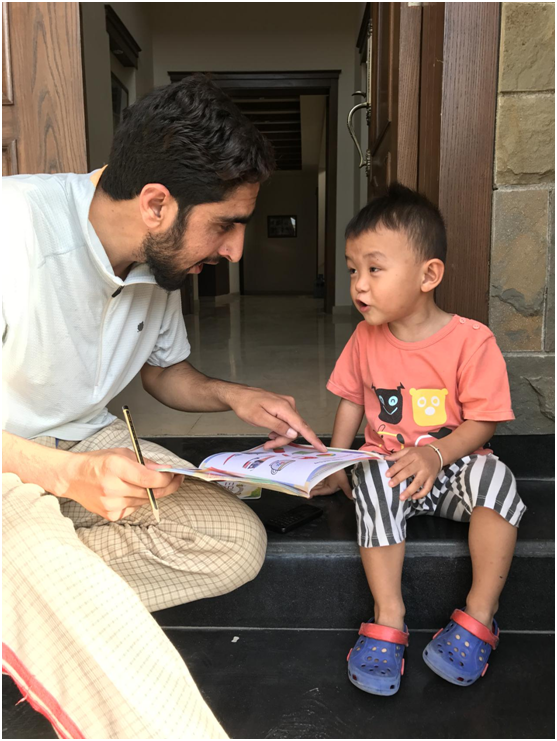Hou Wenjun and Li Qiaohui, a couple working at the Dasu Hydropower Project brought their child, Guoguo, back to Pakistan one and a half years ago.
Both of them are engineers from the China Railway 17th Bureau Group. They came to Pakistan in 2013 and have working on projects involved in the China-PakistanEconomic Corridor (CPEC) for over 1,500 days.

Photo taken in 2013 shows Hou Wenjun (L) and his wife Li Qiaohui. [Photo/sasac.gov.cn]
After graduating from Lanzhou Jiaotong University, Hou Wenjun and his wife Li Qiaohui took part in a group of domestic projects, including a railway in Hainan and expressways in Hunan and Fujian provinces.
In 2013, the company decided to launch a department in charge of projects in Pakistan. As two technical backbones of the company, the couple signed up for it and made it to the shortlist.
The first project Hou Wenjun and Li Qiaohui worked for in Pakistan was the reconstruction of the Karakoram Highway.
The Karakoram Highway stretches over 1,200 km through the Karakoram Mountain and links northern Pakistan to its capital of Islamabad and the country’s southern coastal areas.
It is also the only overland pass connecting China to Karachi, the commercial hub and port city of Pakistan, South Asian subcontinent and the Middle East.
The challenge and hardship of working abroad, in particular a terrorist threatwas beyond their imagination.
The project started construction on Sept 15, 2013. It coincided with the most dangerous period when the risk rating of terrorist attacks there was raised to the highest level.
All the staff had to move to Islamabad and eventually returned to the project once the security situation gets better. In half a year, they travelled six times between the two places.
Li Qiaohui recalled the day they arrived at the construction site, adding that a bomb attack injured a senior police officer.
The Pakistani government assigned police force to protect the staff.
“During peak construction period, a campsite housing about 30 Chinese workers was equipped with 400 policemen,” Li said.
Though the couples work for the same project, they could not see each other that often. In order to communicate with local government more conveniently, Hou Wenjun resided in Islamabad while Li Qiaohui remained at the place where the project was located.
Sometimes, Hou had to travel to Beijing, Taiyuan, Pakistan, Indonesia,Laos and Bangladesh for tendering and bidding.
In 2014, their child -- Guoguo was born. Li Qiaohui returned to work with her son in 2015. The toddler didn’t have any playmates there.

Guoguo, the couple’s 3-year-old son, communicates with a local worker. [Photo/sasac.gov.cn]
According to the local custom, women are not allowed to work outside. Therefore, the couple had to hire a male baby sitter.
Now, 3-year-old Guoguo is in kindergarten in Islamabad. With regard to the future, the couple said they could not formulate specific plans owing to the nature of their jobs.
“We settle down wherever the project is located,” they added.
(Executive editor: Hao Wen)